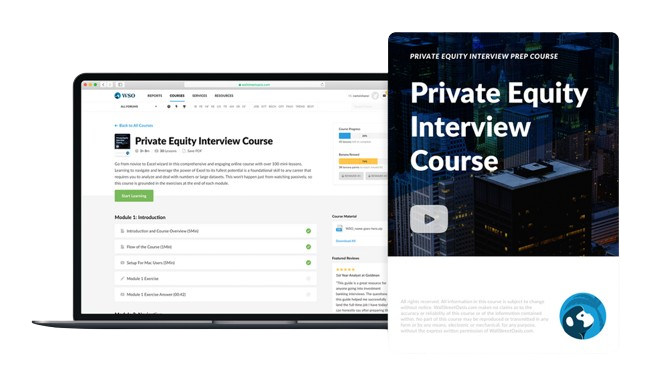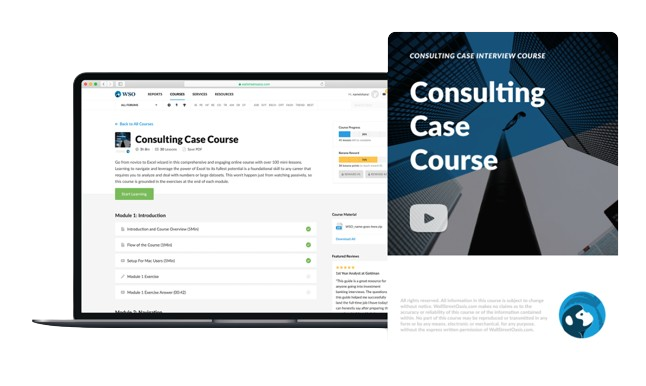Type A Personality
These individuals tend to be extremely competitive, needing to win and fulfill their desired goals to the best of their ability.
What Is a Type A Personality?
A person with Type A characteristics can be described as competitive, impatient, and highly ambitious, with a strong drive to achieve goals. These individuals tend to be extremely competitive, needing to win and fulfill their desired goals to the best of their ability.
They can be impatient due to their tendency to hurry and complete work in a time-efficient manner, often prioritizing speed over other considerations.
Organizations seek employees with unique personality traits to add value to the firm's activities. Personalities are categorized into Type A, B, C, and D. In this article, we'll explore the Type A personality and touch on the Type B personality.
It is worth noting that the Type A personality is often referred to as the Type A Behavior Pattern (TABP) in some contexts.
People with the TABP are active, complete all tasks efficiently, and are target-oriented. Completing, achieving, and obtaining tasks are of critical importance. They are stressed when their work is incomplete.
Key Takeaways
- Type A personalities are characterized by traits like competitiveness, impatience, and high ambition, with a strong drive to achieve goals efficiently. These individuals prioritize tasks, often leading to stress if work is incomplete.
- Type A individuals prioritize goals over social needs, succeed under pressure, and excel in leadership roles.
- They exhibit strong work ethics, encourage excellence in others, and meticulously plan tasks, impacting both professional and personal relationships.
- Type A personalities thrive in roles requiring leadership, attention to detail, and coordination, such as advertising manager, event coordinator, and operations manager.
Understanding Type A Personality
Individuals with a TABP personality may prioritize goals over empathizing with colleagues' feelings and social needs, but this varies among individuals. They tend to succeed and execute well under intense pressure and stressful situations.
They react differently to work and personal lives, reflected in their behavior and personality traits. Ambitious individuals lead group projects, ensuring deadlines are met, monitoring investments and results, and striving to maintain a strong business reputation.
They also tackle their job requirements diligently to meet high standards, encourage excellence in their colleagues, and push their team to grow and improve their credentials.
In familial and platonic relationships, people with this personality plan extensively and discourage unproductive activities. Some individuals with this personality type may encourage family members to excel in academics and extracurricular activities.
TABPs change their reactions to working faster under time pressure to achieve success and are impacted by their degree of responsibility.
They are also comfortable working alongside those with identical personality traits. They demonstrate more satisfaction when working with others who take their work seriously and work quickly, as they enjoy working in a challenging environment.
While many with TABP traits may exhibit perfectionistic tendencies, not all are natural leaders. They experience a strong correlation between job satisfaction and role clarity. Thus, they dislike uncertainty regarding their job or assigned tasks.
Furthermore, they set challenging goals to demonstrate ambition and often take risks to achieve them.
Type A Vs. B Personalities
On the opposite side of the spectrum, Type B personalities are relaxed and do not enjoy hostility or aggression. They prefer leisure without any guilt or worry. They also finish work efficiently and have good time management skills.
They have better outcomes in problem-solving because they have strong interpersonal skills and react well to incentives and rewards; therefore, their motivation increases quickly.
Although As are vulnerable to stress, Type Bs experience lower stress levels and benefit from better overall health. Type Bs do suffer more when they're experiencing unhealthy interpersonal relationships.
Both personalities are prone to experiencing stress and worry. However, they have different responses and ways of handling it. Let's check them out in the table below:
| Aspect | Type A Personality | Type B Personality |
|---|---|---|
| Competitiveness | Highly competitive | Less competitive, more relaxed |
| Time Management | Often rushed, highly time-conscious | More relaxed approach to time management |
| Sense of Urgency | High sense of urgency | Less urgency in completing tasks |
| Work Style | Prefer multitasking, fast-paced | More laid-back, prefer steady pace |
| Stress Response | High stress levels | Lower stress levels |
| Patience | Impatient | Patient |
| Achievement Orientation | Strong desire for achievement | Content with achievements |
| Reaction to Failure | May become frustrated or anxious | Takes failure in stride, more resilient |
| Leadership Style | Directive, assertive | Collaborative, inclusive |
| Health Implications | Higher risk for stress-related illnesses | Lower risk for stress-related illnesses |
Type A Personality Drawbacks
The first disadvantage is that such domineering personality traits can hurt one's health. TABPs give rise to stress-related problems since they take on jobs highly demanding in competitive industries.
Due to constant stress and impatience, they can develop high blood pressure, which leads to the development of coronary heart disease and other cardiac problems.
While being work-oriented and goal-focused, individuals with Type A Personalities may spend a significant amount of time working, potentially leading to strained relationships due to perceived aggressiveness or rudeness.
The Type A personality theory was developed from observations of patients seeking treatment for stress and anxiety, with researchers noting a correlation between these disorders and certain Type A characteristics.
People with this personality disorder are often tense and impatient, which can cause various stress-related issues. In addition to heart disease, individuals with Type A personalities may experience conditions such as indigestion, insomnia, and ulcers.
In the 1950s, two cardiologists recognized some patients who sat on sofa edges and held armrests with the urge to leave, which caused the doctors to identify the link between cardiac issues and personality types.
This indicated that people with greater stress levels have an increased risk for cardiac problems. So then, how and why does A-type personality behavior develop?
Behavior observed in children as young as three years old suggests that genetics play a role in contributing to personality type. Thus, hereditary factors influence children's behavior and psychological makeup.
Note
The environment also affects which personality type children develop. Children also adopt such behaviors by modeling their parents and adopting TABP.
Managing Stress
Stress-related problems and disorders are prevalent in medical practice. The hustle and drive to achieve worldly gains involve a lot of pressure, leading to increased worry, stress, and anxiety.
Therefore, individuals with Type A personalities should prioritize managing their stress levels to mitigate potential health issues. Some good coping strategies for managing stress are:
- Yoga - Yoga is an additional exercise that involves slow movements and stretching. It decreases anxiety and improves mental performance.
- Meditation - Meditation decreases stress, anxiety, and pain. It also improves mood and energy levels by boosting the release of positive hormones. This is effective for controlling and managing blood pressure while lowering the chances of coronary heart disease.
- Exercise - Exercise can lower feelings of stress and cause the release of positive and mood-enhancing hormones that reduce blood pressure and anxiety.
- Having a healthy diet - Having a healthy diet is essential for decreasing the impact of stress. Nutrients like vitamin C, magnesium, and omega 3 benefit health and help you feel your best.
Occupations for Type A Personalities
These types of personalities can benefit from roles that involve leadership, attention to detail, and coordination.
1. Advertising Manager
Advertising managers coordinate the marketing department. They work in a high-stress environment and often possess assertive personalities to ensure timely delivery of content and adherence to budgets.
They are dynamic, authoritative, and assertive by nature. They develop, monitor the performance of, and assess the success of advertising campaigns. Advertising managers must have a bachelor's or master's degree in marketing as their primary qualification.
2. Event Coordinator
An event coordinator designs corporate events by securing suppliers and venues. In addition, they mitigate problems by ensuring all schedules and bookings are in order.
They adhere to stringent requirements and demonstrate diplomacy when addressing issues. To be an event coordinator, a bachelor's degree is needed to coordinate any business area, such as marketing or sales.
3. Operations Manager
An operations manager observes all HR functions by dynamically organizing workflow, ensuring all teamwork is completed cohesively and resources are in place for completing tasks.
They also implement training programs and schemes while ensuring policies comply with legal requirements. They maintain coordination with the HR department and use the best practices possible.
Common traits associated with this role include organization, efficiency, and attention to detail. Given the significant responsibility of overseeing various aspects of the firm, operations managers often experience high-stress levels.
The common traits in all these roles are competitiveness, a sense of urgency, drive, and a strong work ethic. Managerial and coordinator positions are ideal for those with TABP because they already possess these traits.
To succeed in any role, employees must have a positive attitude and be able to collaborate. While traits associated with TABP can be advantageous, success in any role requires a positive attitude and the ability to collaborate effectively.
Summary
Type A personalities are often characterized by competitiveness, a drive for excellence, and perfectionist tendencies. For a business to succeed, it is essential to balance personalities in the workplace.
While they often exhibit independence, drive, competitiveness, and a strong work ethic, they may also be more susceptible to stress, anxiety, and worry. This susceptibility to stress may contribute to health issues like coronary heart disease over time, emphasizing the importance of stress management.
Type Bs are often perceived as less affected by stress, yet managers must assess both interpersonal dynamics and stress levels. Employees should be observed, as stress can lead to poor performance and reduced productivity.
Both personality types bring key traits beneficial for organizational success, so having a balance of both can be advantageous. Managers must seek coping mechanisms and an appropriate leadership style based on personality types.





or Want to Sign up with your social account?